The Spix parrot species that inspired the animated movie “Rio” is considered critically endangered with only about 100 birds in the world, all in captivity. It’s also very possible that the species is extinct in the wild as well, according to the International Union for Conservation of Nature. Recently, two birds, named Tiago and Carla, after their on screen doppelgangers, were sent from Germany to Brazil with hopes that they can help revive the population and their descendants can eventually be reintroduced into the wild.
Find out what other famous movie animals are in danger (or not):
1. Spix parrots (Tiago and Carla)

Photo by Mike Mozart on Flickr.
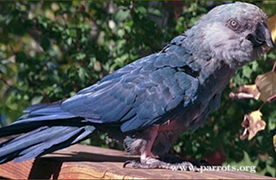
2002 photo by Mickey Muck | World Parrot Trust.
Status: Critically endangered
Learn more about the Spix parrots:

2. African Elephants (Dumbo)
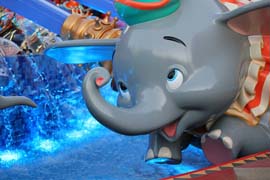
Photo by Ricky Brigante on Flickr.
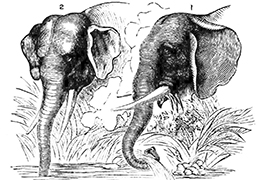
Etching from book by Meyers Konversations-Lexikon.
Status: Vulnerable
With his large ears, Dumbo was most likely of the African elephant variety — while all the elephants that made fun of him were most likely Asian elephans. African elephants are distinguished from Asian elephants by their larger ears that are shaped like the continent of Africa. They are also taller and heavier than their Asian counterparts weighting about 8,800-15,400 pounds. For comparison, Asian elephants weigh about 6,600-13,200 pounds. There are about 470,000 African elephants in the wild, according to WWF.
3. Giant Pandas (Po)
Status: Endangered
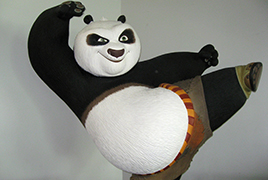
Photo by Victor Lee on Flickr.

Photo of Mei Xiang by National Zoo.
There are only about 1,800 pandas in the wild and they are the rarest member of the bear family. Pandas mainly live in southwestern China and eat a diet nearly entirely of bamboo.
4. White tail deer (Bambi)
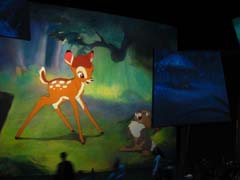
Photo by Loren Javier on Flickr.
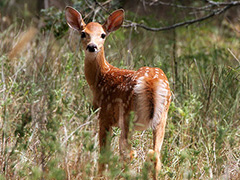
Photo by TexasEagle on Flickr.
Status: Least Concern
Bambi, a white-tailed deer is part of a species considered by the International Union for Conservation of Nature to be a of least concern. It has adapted to a wide ranges of human-dominated and natural habitats and occurs in large populations, the IUCN reports. Only one type of white-tailed deer the Key deer of Florida is listed as endangered by the U.S. Fish and Wildlife Service. The Colombian white-tailed deer of Oregon and Washington state, had been listed as endangered but has now been de-listed due to recovery.
5. Emperor penguins (Mumble)
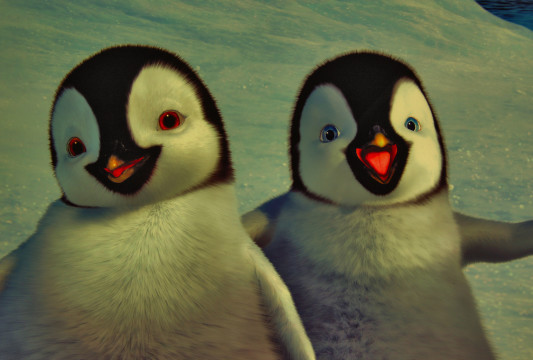
Photo by marc c on Flickr.
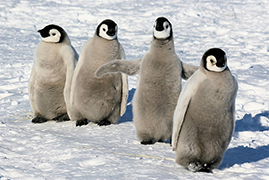
Photo by PROMartha de Jong-Lantink on Flickr.
Status: Near threatened
The emperor penguins that inspired Mumbles and his friends in “Happy Feet” have been uplisted to “near threatened” due to a projected moderately-rapid population decline over the next three generations due to climate change, the IUCN reports.
6. West African lion (Simba)
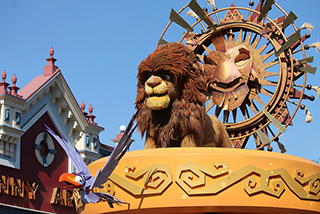
Photo by Loren Javier on Flickr.
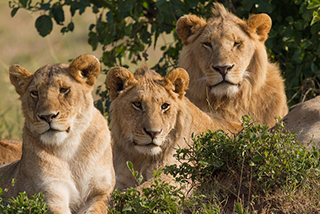
Photo by Benh LIEU SONG on Flickr.
Status: Critically endangered
Simba and his friends from “The Lion King” were all West African lions, the name “Simba” even means lion in Swahili. A recent survey found that only 404 lions remain in West Africa, the IUCN reports, causing the organization to list this species as critically endangered.
7. Dalmations (101 Dalmations)

Photo by Loren Javier on Flickr.

Photo by Laura Gilmore on Flickr.
Status: Not endangered
Despite Cruella de Vil’s efforts dalmnations are not endangered. According to the American Kennel Club, dalmations are very active, athletic, durable dogs created for long jaunts. “They are a comparatively healthy breed with few known health issues,” the AKC said.
8. Clownfish (Nemo)
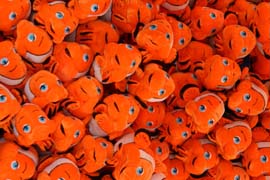
Photo by Morgan on Flickr.
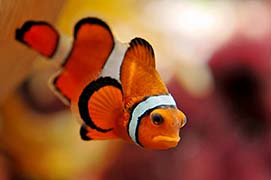
Photo by Tambako The Jaguar on Flickr.
Status: Not endangered?
While the National Oceanic and Atmospheric Administration has found that the orange clownfish that inspired “Nemo” does not warrant listing as a threatened or endangered animal, some organizations disagree. According to the Center for Biological Diversity, orange clownfish are at risk of extinction due to global warming. The IUCN also said that clownfish are one species that are the most vulnerable due to climate change.
9. Great white shark (Jaws)
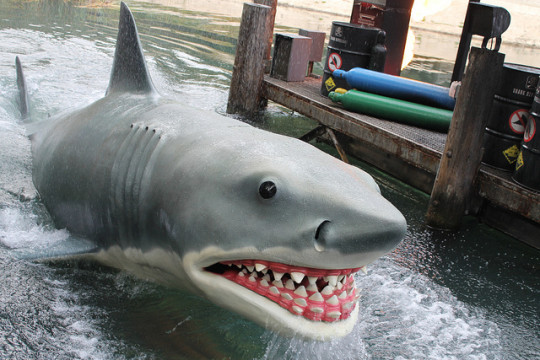
Photo by Loren Javier on Flickr.
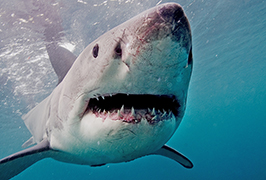
Photo by Maritime Aquarium at Norwalk on Flickr.
Status: Vulnerable
Jaws was likely attacking villagers because he was hungry (and angry). Threats to great white sharks include commercial and sports fishing and the degradation of their habitats used as pupping and nursery grounds, the IUCN reports. The IUCN believes the great white should be removed from international game fish record lists.
10. Mermaids (Ariel)
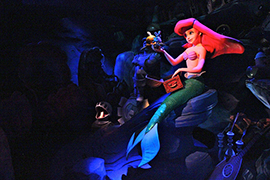
Photo by Ricky Brigante on Flickr.

Photo by Jennifer Coffey on Flickr.
Status: Nonexistent
Sadly for Eric, Ariel and her sea-faring family are figments of a long history of imaginations. However Columbus apparently mistook a manatee for a mermaid, and those species are considered vulnerable by the IUCN.
 CGTN America
CGTN America
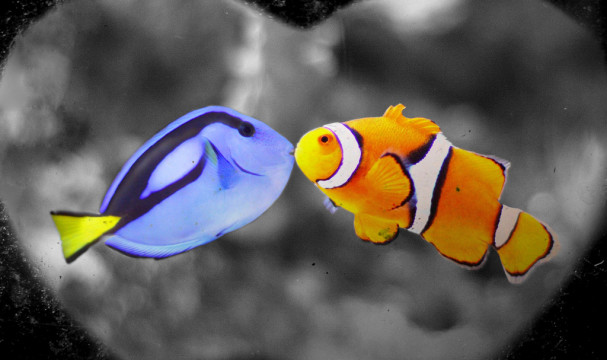 Photo by Nathan Rupert on Flickr.
Photo by Nathan Rupert on Flickr.
